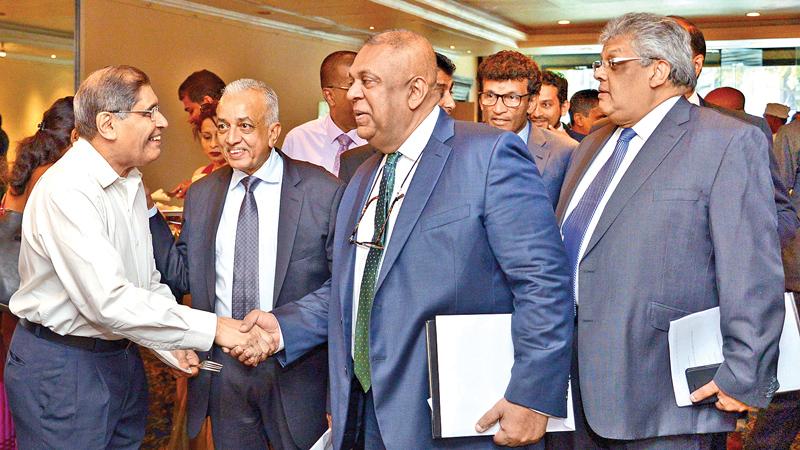
The government’s third budget presented last Thursday confirmed the discipline needed to maintain financial stability and stayed true to the government’s Economic Development Plan-Vision 2025, economic analysts said.
“This budget seems consistent with the Government’s long term economic policies which is a very positive step towards promoting investments and encouraging exports – the most important segments to earn valuable foreign exchange. The vision is quite clear now as the government has promised through the budget to support and foster economic growth while maintaining political stability,” according to a senior economist.
Through a confident and innovative set of proposals, the Government is aiming at a budget deficit of 4.8% and more importantly, a Revenue/ GDP of an ambitious 16.3%.
According to a research report by First Capital Research, the Budget for 2018 focused promoting entrepreneurship and proposing structural changes to convert the economy to a more outward looking policy framework while also taking an active stance in promoting green environment and also providing an enabling environment for Public Private Partnerships.
Government plans on a sustained path of fiscal consolidation as it aims for the first time to achieve a revenue surplus and to reduce budget deficit to 4.8% of GDP for 2018 while the Debt to GDP ratio is expected to improve to 77.5%.
The report published on Friday cited that with the government’s revenue enhancement strategies on track, budget has proposed large number of low interest and interest free credit schemes for a range of small and micro industries and startups supported by establishing incubators with a vision to enhance entrepreneurship while para tariff removal for 1,200 goods and supporting infrastructure including creation of EXIM windows are proposed accelerate growth in tradable sector.
“The budget has a special focus on creating green environment with tax concessions on electric vehicles and solar panels, implementation of a carbon tax and concessions for manufacture of degradable products while PPPs are promoted by establishing a single agency and creating regulating framework for PPPs.
“Measures relating to Capital Market Development, budget proposes improving legal and policy framework of the capital market, improve liquidity via listing of non-strategic enterprises and allowing state to raise equity and debt from the capital markets,” it said.
The Government’s fiscal strategy is focused on a sustained path of fiscal consolidation through revenue enhancement. The medium term fiscal strategy is expected to reduce overall budget deficit to 4.8% of GDP by 2018 and 3.5% by 2020 further strengthening its fiscal position.
The fiscal position is expected to be improved primarily through digitalization leading stronger tax administration and also via the implementation of the new Inland Revenue act which broadbases the tax system and minimizes tax exemptions. Number of tax changes have been implemented in the 2018 budget aiming to remove para tariffs to focus on an outward-looking policies. Government is expected to register a revenue surplus for the first time reaching 0.5% of GDP in 2018. Further, Budget deficit is anticipated to be reduced to 4.8% with Debt to GDP ratio expected to fall to 77.5%, according to First Capital Research.
